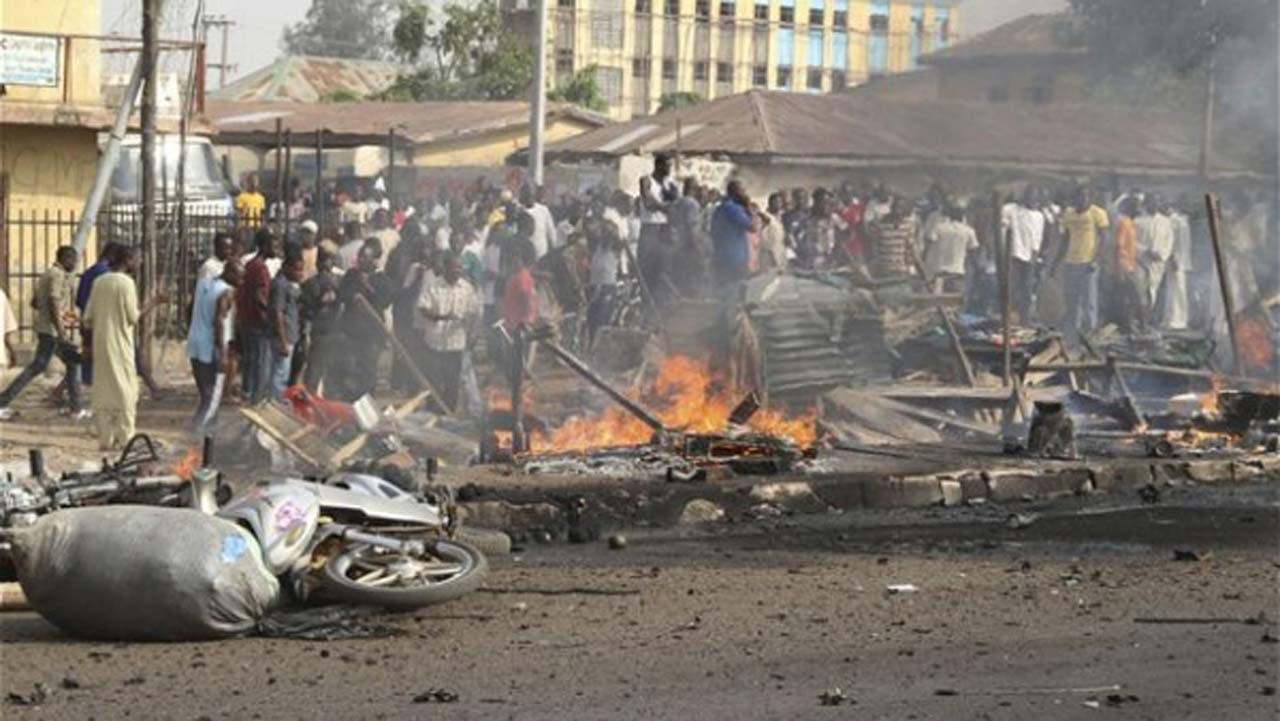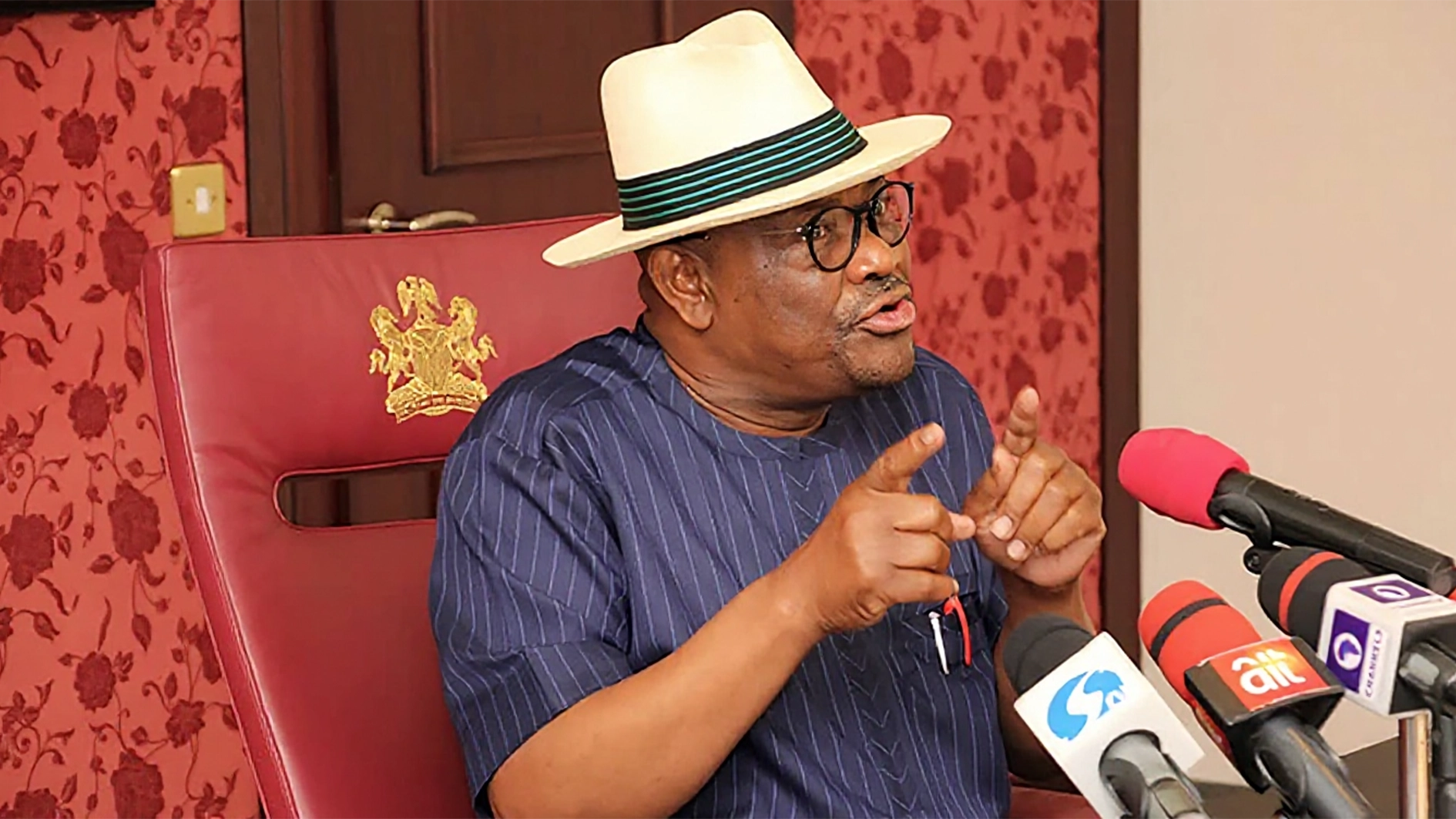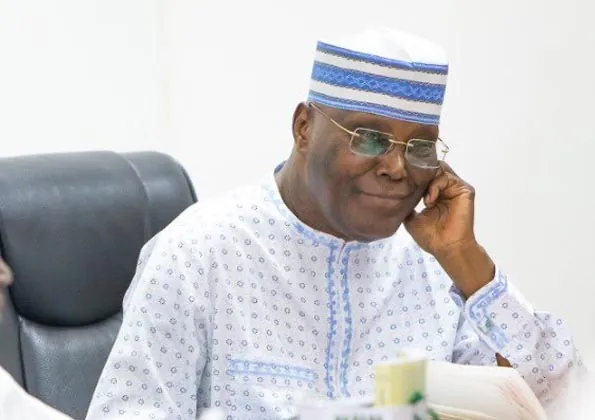
In May 1953, riots broke out in the ancient city of Kano, the largest city in Northern Nigeria. The riots were for the main part clashes between Northerners – generally opposed to Nigeria’s independence, and Southerners – who supported immediate independence for Nigeria. The riots lasted for four days and many lives were lost.
In the pre-independence debate, Southern political leaders tried to press ahead with the independence drive, while their counterparts from the North fearing “domination by the south,” tried to slow the process and looked to the colonial regime to protect them.
On March 31, 1953, a prominent member of the Action Group, Anthony Enahoro, moved the motion that Nigeria should become independent by 1956 at the federal parliament in Lagos. The motion was supported by Action Group members and majority of the members of the National Council of Nigeria and the Cameroons. However, the Northern People’s Congress did not accept the motion for self-governance as Northern politicians felt that their region was not yet ready for self-government, and essentially torpedoed Enahoro’s suggestion that independence should happen in 1956.
Ahmadu Bello, the NPC’s leader, proposed an amendment saying self- governance should be granted “as soon as practicable” replacing “in the year 1956” in Enahoro’s bill. This led to disagreements and resulted in a strain on the relationship between Northern and Southern leaders. A Northern member of the House moved a motion for adjournment, a motion which both the AG and the NCNC viewed as delay tactics, leading all members of both parties to walk out of the House.
When the Northern delegates left the House, they were confronted by hostile Lagos crowds who jeered and insulted them. Members of the Northern delegation were embittered and in an “Eight Point Programme” in Lugard Hall, Kaduna, they sought for secession.
Undeterred, and refusing to listen to the concerns of their Northern counterparts, a delegation of the AG and NCNC led by Samuel Akintola, went on tour of the North to campaign for self-government. The tour was the immediate cause of the Kano riots.
There was already tension in the region because of the hostility faced by the Northern delegation in Lagos who objected to self-governance when Akintola’s tour arrived Kano on Friday, May 15, 1953. An initially orderly demonstration by NPC supporters took place that day, which was quickly followed by small skirmishes on Saturday, May 16. The disturbances that led to the riot started out at the Colonial Hotel that Saturday. The hotel was the venue of a meeting by the AG. On the morning of the meeting, the Kano Native Authority withdrew permission for the meeting, and a mob gathered outside the hotel and started stoning people. During the fracas, two people believed to be Southerners died. The mob then moved on and attempted to gain entry into Sabon Gari but were subdued by the Native Authority police.
The situation became a more serious inter-ethnic crisis on Sunday, May 17, when mobs from Fagge, an area dominated by Northerners, attempted to break into Sabon Gari with some success. It is important to note that though the mobs’ original chants were against the Yoruba, the casualties in the Sabon Gari area were mostly Igbo, because the rioting soon deteriorated into looting. The skirmishes spilled into areas such as Fagge where small unorganized ethnic clashes occurred. The Native Authority Police, and the Army, were called upon and prevented further degeneration.
On Monday, May 18, 1953, the colonial government declared a state of emergency in Northern Nigeria and troops were deployed to Kano. Forty-six people were killed during the riot, which was pronounced as an ethnic clash by the Colonial Government, but downplayed as “a political riot between those who wanted self-government in 1956, and those who wanted imperialism to continue,” by the Lagos-dominated local press.
After the riot, the NPC issued a list of demands, and said they would not return to the Federal Parliament in Lagos unless their demands were met. The demands included autonomy for each region with respect to all matters except defence, external affairs and Customs. The demands were met.
The issues which caused the Kano Riots of 1953 still exist in Nigeria today. While there were complications along the way, such as the Western Parliament elections which effectively split the burgeoning Igbo/Yoruba alliance, largely, the distrust between the North and the South of Nigeria still exists, and I daresay has gotten worse in the last half decade.
Fear of domination by the other; a refusal to listen to, and try to understand the other’s point of view; the ready use of violence by politicians to press home their demands; the failure to hold some individuals accountable for the violent deaths of their countrymen. These all exist in today’s Nigeria, six and a half decades later.
What I find interesting is this – the list of demands by the Northern People’s Congress before returning to Lagos, are interestingly, very similar to the list of demands by various groups seeking a “restructuring” of Nigeria. Most of those groups, are from the South today.
History, is indeed, full of irony.
[ad unit=2]






